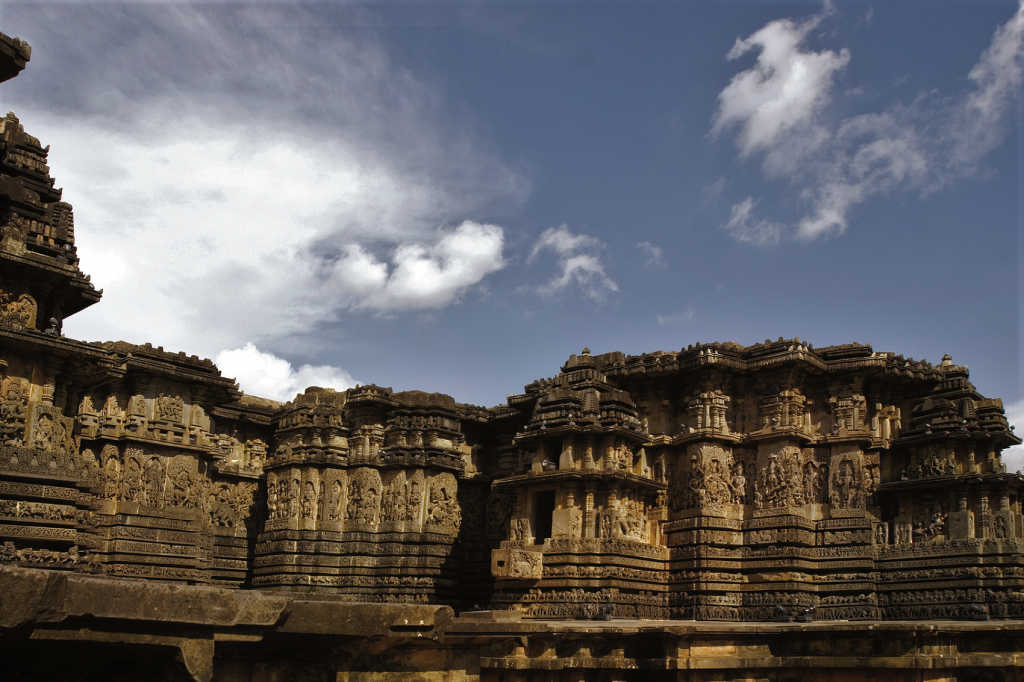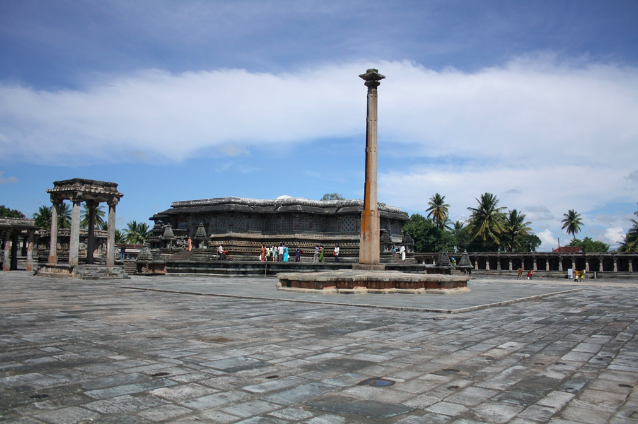Halebidu Belur Travel Itinerary
Planning a trip to Halebidu-Belur? Well, we recommend the following itinerary to help you make the most of your trip! Halebidu and Belur were both capitals of the Hoysala Empire at different periods and today are popular religious temple towns. 23km apart, it’s easy to cover the two towns in a day! Read on to learn about the heritage sites at Halebidu and Belur. The towns are well-connected to each other and to Hassan by local bus services.
Halebidu
Hoysaleshwara Temple: Built during the reign of Hoysala king, Vishnuvardhana, this 12th Century temple is dedicated to Lord Shiva. Known for its intricate engravings and sculptures, this star shaped temple is actually a combination of two temples; Hoysaleshwara and Shantaleshwara, said to be dedicated to Vishnuvardhana and his wife Shantala, respectively. This iconic temple is a testimony to awe-inspiring workmanship and is not to be missed!

Kedareshwara Temple– Located just 400 metres from the Hoysaleshwara temple, this temple is dedicated to Shiva in the form of Kedareshwar. Built in the 12th Century, the engravings in this temple are stunning. Do pay attention to the carving and importance given to the bhava in accordance to asthra (weapons) for numerous the Hindu Gods like the Shiva, Vishnu, Brahma, Lakshmi, Saraswathi, Krishna, Varaha, Ganesha, adorning the temple.
Apart from the ornate Hindu temples, the area also houses some of the most spectacular and equally rich in art Jain basadi/basti or shrines.
Parshvanatha Basti: Dedicated to the twenty third tirthankara, Parshva, the basti was built by Boppana, son of Gangaraja, a minister in Vishnuvardhana’s court. The shrine houses 18 ft tall statue of the tirthankara, 32 pillared pavilion. Shantinatha Basti: The shrine dedicated to the sixteenth tirthankara, Shantinatha, is now being proposed as a UNESCO World Heritage Site. Adinatha Basti: Housing an idol of Adinatha and Saraswati, this 12th Century Jain temple is comparatively smaller than the other two bastis.
Belur
Chennakeshava or Keshava temple: Considered as the finest examples of Hoysala architecture. dedicated to Lord Vijayanarayana, one of the 24 incarnations of Lord Vishnu. The temple was built to commemorate Hoysala victory over the Chola, under the leadership of King Vishnuvardhana. The exquisite carvings on the temple depict the scenes from the Upanishads, Mahabharata and Ramayana.

Kappe Chennigaraya: Situated to the south of the Chennakeshava temple, this temple contains a 6.5ft tall sculpture of Chennakeshana. This temple was consecrated by Shantala, senior queen a of the Hoysala king Vishnuvardhana.
Karthika Deepotsava Stambha or the Gravity Pillar: 42 feet tall lamp post, the Karthika Deepotsava Stambha, was installed by a commander of the Vijaynagara ruler, Krishnadevraya demarcating the emergence of the Vijaynagara empire as the Hoysala empire was on a decline. It is popularly referred to as Gravity Pillar as it appears to be standing on its own dead weight.

Credit: Sandeep Kunnathu, https://www.flickr.com/photos/reflektions/5035351866/
Vishnu Samudra: Built during the reign of Narasimharaya, this well was made to provide access to sacred water for holy purposes to the devotees.

